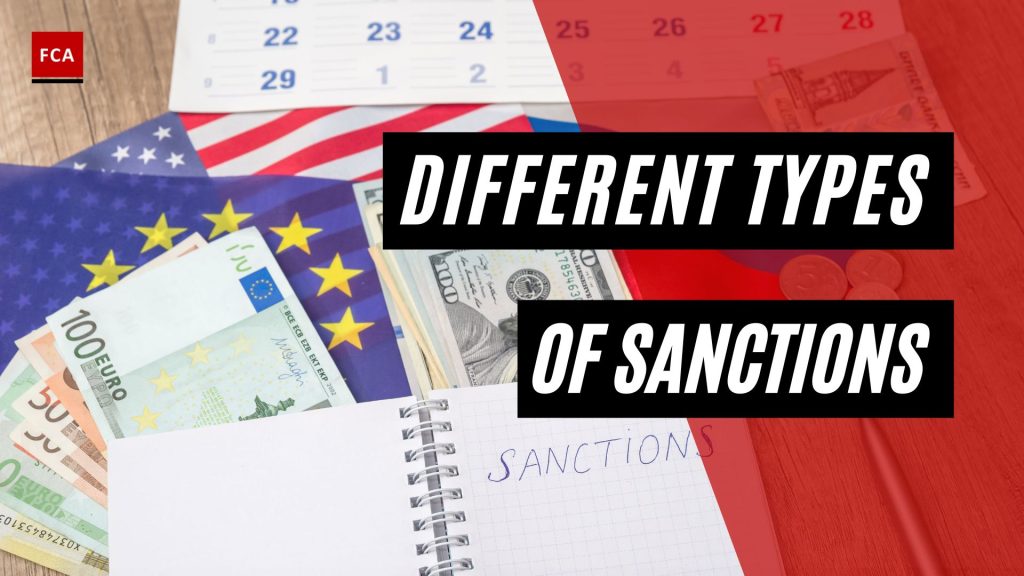There are different types of sanctions, such as economic sanctions, international sanctions, embargo, and diplomatic sanctions. Sanctions are preventive measures that allow the EU to respond quickly to political challenges and developments that contradict its goals and values.
Sanctions could, for example, target:
- Terrorism
- Human rights violations
- Cyber-attacks
- Money laundering

Different Types of Sanctions
Economic sanctions are commercial, and financial penalties applied by one or more countries, against a targeted self-governing state, group, or individual. Economic sanctions are not necessarily imposed because of economic circumstances, but they may also be imposed for different political, military, and social issues. Economic sanctions can be used to achieve international and domestic objectives.
An embargo is the partial or complete prohibition of commerce and trade with a particular state or a group of countries. Embargoes are considered strong diplomatic measures imposed to elicit a given national-interest result from the country on which it is imposed. Embargoes are considered legal barriers to trade, which are considered to be acts of war. Embargoes may mean limiting or banning export or import, creating quantity quotas, imposing special tolls, and taxes, banning freight or transport vehicles, freezing freights, assets, and bank accounts, limiting the transport of particular technologies, etc.
International sanctions are political and economic decisions that are part of diplomatic efforts of countries, and multilateral or regional organizations against states either to protect national security interests, to protect international law, and defend against threats to international peace and security. These include the temporary imposition on a target of economic, diplomatic, trade, cultural, or other restrictions that are lifted when the motivating security concerns do no apply, or when new threats do not arise.
Diplomatic sanctions are sanctions where political measures are taken to express disapproval at a certain action through diplomatic, and political means, rather than affecting economic or military relations. Measures taken include limitations or cancellations of high-level government visits or withdrawing diplomatic missions.
Trade sanctions can include prohibitions on:
- import, export, movement, transfer, making available or acquisition of goods and technology
- the provision or procurement of services related to goods and technology
- the provision or procurement of certain other non-financial services
Final Thoughts
There are different types of sanctions, such as economic sanctions, international sanctions, embargo, and diplomatic sanctions. Sanctions put pressure on countries that endanger the peace, implement harmful policies, or violate international law. Sanctions can also be imposed on specific individuals or organizations. Sanctions are a common strategy used to persuade foreign governments and individuals to change their behavior. The UN Security Council (UNSC) may impose sanctions in response to threats to global peace and security.









